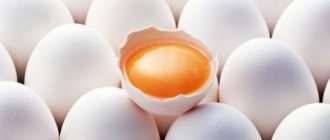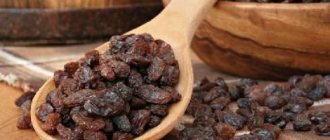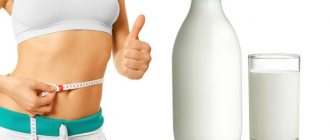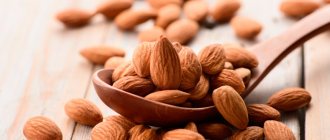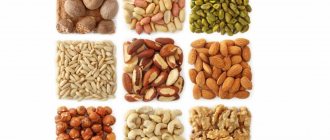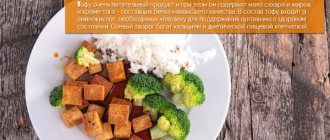The benefits of nuts for the human body are undeniable. But here it is important to observe moderation and use them correctly, then all the beneficial properties and microelements will bring the necessary benefits.
Eating nuts daily has a positive effect on the functioning of the entire body, for both men and women. Including them in your diet is incredibly beneficial for your health and appearance. In our article we will take a detailed look at each variety, the secrets of eating nuts and adding them to various dishes.
Beneficial features
Nutritional value of nuts:
- fats - 50-75%;
- proteins - 13-20%;
- carbohydrates - 5-20%.
Nuts contain unsaturated fatty acids, which are much healthier than animal fats. Vegetable fats do not contain cholesterol, so they contribute to full fat metabolism.
Different types of nuts have different positive effects on the human body:
Nuts in a saucer
- Almonds are used for tachycardia, otitis media, stomatitis, pneumonia, and gastrointestinal diseases.
- Cashews are used to prevent atherosclerosis, osteochondrosis and arthritis.
- Pine nuts. Strengthen the immune and cardiovascular systems, normalize blood pressure.
- Walnuts. They help fight thyroid diseases, anemia and diathesis.
Separately, it is worth noting the positive effect of nuts on men. For example, eating walnuts improves sperm quality, and pecans help in the treatment of prostate diseases.
Nuts and pregnancy. Norm
During pregnancy, nuts will help support the health of the mother and the unborn baby. They are good because:
- have a high calorie content;
- charge with energy;
- reduce cardiovascular disorders and the development of atherosclerosis;
- filled with vitamins and minerals;
- can increase the tone of the nervous system;
- improve brain function;
- normalize fat metabolism, help maintain normal weight;
- lift your spirits;
- have a positive effect on the development of internal organs and the formation of bone and muscle tissue of the fetus
Gynecologists recommend treating these products with caution, despite their wonderful beneficial qualities. There are contraindications to eating nuts during pregnancy.
- Poor digestibility. The eaten dose of nuts should not exceed 30 g per day. During administration, they must be thoroughly chewed or crushed. You can soak them in water for better digestion. Doctors recommend eating nuts with herbs and dried fruits.
- Irritate the stomach. The fiber contained in nuts helps cleanse the intestines and keep them active. At the same time, during pregnancy there is no need for extra stress on the body. Therefore, if you have a stomach upset, you should limit yourself in consuming this product.
- Strong allergen. Nuts can provoke not only an allergic reaction in a pregnant woman, but also cause sensitivity to allergens in their composition in the unborn child. In the second and third trimester, you should completely exclude them from the diet, or limit yourself to a few kernels per week.
How many nuts can you eat a day?
Handful of nuts
People on strict diets eat a limited range of foods. Such diets allow you to quickly lose weight, but can harm your health. Proper nutrition should be varied and include all the necessary vitamins and minerals. Nuts are among the healthy and nutritious foods that can be consumed during diets.
Nuts contain a lot of fat. However, vegetable fats are different from animal fats. They burn slowly, provide a lot of energy and do not increase blood cholesterol levels.
Eating an unlimited amount of nuts can negatively affect your figure. How much do you need
Hazelnuts
eat nuts a day? To avoid gaining weight, men and women should eat no more than 20-30 g of nuts per day. Nuts come in different types. They differ from each other in color, shape, weight and size.
The standard weight of 20 g corresponds to:
- 20 almond kernels;
- 150 pine nuts;
- 40 pistachios;
- 10 pieces of walnuts;
- 18 pecan kernels;
- 18 cashews.
Separately, it is worth mentioning Brazil nuts. 8 nuts add up to 20 g, but it is not recommended to eat such an amount due to the high probability of selenium overdose. The recommended intake of Brazil nuts is 3 pieces per day.
Attention! Moldy nuts should never be eaten. Under the influence of mold, aflatoxins are formed in the kernels - substances that can provoke the development of cancer.
Norms for nut consumption
In order to maintain good health and good spirits, you need to eat a varied and high-quality diet, eat fresh fruits, vegetables, dairy products, cereals and nuts every day. But how many nuts can you eat per day if you are advised to eat the same fruits and vegetables in large quantities? After all, everyone knows that nuts are very high in calories and are difficult to digest in excessive quantities.
Benefits of nuts
Even the ancients knew about the benefits of nuts. They are a storehouse of plant proteins, microelements, fats, vitamins, amino acids, minerals, some of which are found only in nuts. In terms of nutritional value, they can compete with meat and milk, and despite their high calorie content, nutritionists advise people on strict diets to include them in their diet.
Regular consumption of various nuts will bring invaluable benefits to the body. Vitamins will improve the heart and nervous system, activate brain activity, stimulate memory and attentiveness.
Eating a few pieces every day will be an excellent prevention of many diseases - heart attack, pathologies of the reproductive system, impotence, senile dementia, premature aging, obesity.
Vitamin E will prevent the formation of cholesterol plaques, iron will relieve anemia, Omega-3 normalizes hormonal levels.
Each type of nut contains its own set of useful substances.
Walnut
Consists of vitamins A B C E. In terms of the presence of ascorbic acid, it is much superior to currants and lemon. In addition, it contains iron, selenium, zinc, calcium, magnesium, iodine. This entire set is extremely important for the health of the kidneys, stomach and liver. It is used for hypertension, heart pathologies, weakened immunity, insomnia, stress, flu, pregnancy and breastfeeding.
Walnut oil is famous for its rejuvenating and healing effect. It is actively used in many cosmetic and nutritional masks, and by consuming it internally, you can prevent colds. It is taken to treat diabetes, atherosclerosis, thyroid disorders, and chronic forms of hepatitis.
Pine nut
In terms of the amount of mineral content, pine nuts are ahead of other types of nuts. Cedar kernels effectively restore ability to work, restore metabolic processes, and have antimicrobial, immunostimulating, and antibacterial effects. They are especially good in combination with honey, which greatly enhances their effectiveness.
Almond
It is used for gastrointestinal diseases - ulcers, heartburn, colitis. Helps fight biliary tract diseases and obesity. Doctors recommend eating almonds for kidney diseases, reproductive system and anti-cancer therapy. For colds and persistent coughs, sugared almonds are eaten as a natural remedy.
Hazelnut
Hazel kernels perfectly regulate metabolic processes, slow down aging, and fight excess weight. Hazelnuts help restore strength after exhausting long-term illnesses; they are considered a preventative against anemia, heart disease and neoplasms.
Peanut
Despite its comparative cheapness, the benefits of peanuts are extremely great. Regular use in food lowers cholesterol, promotes cell renewal, improves the functioning of the nervous system, helps with insomnia, and promotes heart function.
Pistachios
They have a unique tonic property and are extremely useful in stressful situations, depression, and overwork. Reduces cholesterol and regulates metabolism.
Cashew
Strengthen the body's protective functions, have an antiseptic and anti-inflammatory effect, help with respiratory diseases, flu, colds, and bronchitis. They have analgesic properties. Cashew-based ointment treats gum inflammation.
All nuts are eaten both raw and roasted. After roasting, it is easier to peel them and a more subtle aroma and taste of the kernels is revealed. It is useful to eat nuts without salt, sugar and various flavor enhancers. They perfectly complement culinary masterpieces, enrich the taste of confectionery and sweets, fill salads and side dishes with piquancy and nutritional value.
Norm per day
It is no secret that any proper diet provides for a varied, full menu, and not a rigid 1200 kcal per day, which includes a glass of kefir, an apple and water.
Of course, this may seem like an excellent diet, especially to those who want to “quit overeating,” but there will be no benefit for the body from such a menu, and as soon as the diet ends, a devastating feeling of hunger will immediately arise, suppressed by remarkable willpower. In the end, the unfortunate person gives up and leans on everything.
So isn’t it better to eat a healthy and balanced diet and include high-calorie nuts in your menu? Moreover, scientists conducted a number of experiments in which it turned out that regular consumption of nuts improves the functioning of all organs, promotes weight loss, good mood and cleansing of the body. But how many nuts should you eat per day so as not to harm your body?
Nuts are full of fats, but these are natural vegetable fats that are not harmful to the body and do not increase cholesterol levels. Polyunsaturated fatty acids burn slowly in the body, which means they constantly provide energy and strength. If you eat 20-30 g per day, there will be no problems with your figure. 30 g contains 200 kcal. How many nucleoli fit into the treasured 20 g?
- almonds – 20 pcs.;
- pine nuts - 150 pcs.;
- peeled pistachios – 40 pcs.;
- walnut – 10 pcs.;
- Brazil nuts – 8 pcs. (it is not recommended to eat more than 3 nuts per day due to the risk of selenium overdose);
- pecans – 18 pcs.;
- cashews – 18 pcs.
100 g of nuts will replace half of the calories needed for life. But you don’t need to rush to a package of nuts, hoping to survive on it all day. The body will not be able to digest more than 100 g, and unless food poisoning occurs, excess folds of fat on the sides and thighs will be ensured.
You should also not eat nuts at night. It is advisable to eat them for breakfast or have a snack before lunch. This will give you vigor, charge you with strength and energy, and enhance memory and reaction.
Nuts and pregnancy. Norm
During pregnancy, nuts will help support the health of the mother and the unborn baby. They are good because:
- have a high calorie content;
- charge with energy;
- reduce cardiovascular disorders and the development of atherosclerosis;
- filled with vitamins and minerals;
- can increase the tone of the nervous system;
- improve brain function;
- normalize fat metabolism, help maintain normal weight;
- lift your spirits;
- have a positive effect on the development of internal organs and the formation of bone and muscle tissue of the fetus
Gynecologists recommend treating these products with caution, despite their wonderful beneficial qualities. There are contraindications to eating nuts during pregnancy.
- Poor digestibility. The eaten dose of nuts should not exceed 30 g per day. During administration, they must be thoroughly chewed or crushed. You can soak them in water for better digestion. Doctors recommend eating nuts with herbs and dried fruits.
- Irritate the stomach. The fiber contained in nuts helps cleanse the intestines and keep them active. At the same time, during pregnancy there is no need for extra stress on the body. Therefore, if you have a stomach upset, you should limit yourself in consuming this product.
- Strong allergen. Nuts can provoke not only an allergic reaction in a pregnant woman, but also cause sensitivity to allergens in their composition in the unborn child. In the second and third trimester, you should completely exclude them from the diet, or limit yourself to a few kernels per week.
When feeding
Despite their calorie content and high fat content, nuts are practically devoid of carbohydrates. This means that it is impossible to gain excess weight by eating a handful of nuts. But they will saturate breast milk with proteins, amino acids, vitamins, and increase its nutritional value.
How many grams of nuts can you eat per day when breastfeeding, if there are no contraindications? When feeding, any nuts should be taken in moderation and with caution. Even if the mother is not bothered by allergies, stomach upset and other unpleasant symptoms, you should not exceed 15 g per day.
It is better if you mix them with the main dish or dessert, after chopping them. If you exceed the permissible limit, the allergy will not appear immediately, but gradually, accumulating in the baby’s body. Then it will be difficult to determine why he has anxiety, irritation and rash.
Nuts can be replaced with any nut butter - peanut butter, cashew butter, hazelnut butter, almond butter. By adding it as a dressing to salads, soups and side dishes, you can provide yourself with all the necessary elements without fear of any unpleasant consequences. On the contrary, stool will be regulated after childbirth, constipation will stop, and the frequency of intestinal colic in the baby will decrease.
Nuts for children
All parents are interested in the question, how many nuts can children eat per day? Of course, the children's table will be enriched with many elements necessary for the development, growth and formation of the body.
But scientists and pediatricians advise giving them to children after reaching 3 years of age.
Moreover, even 4-5 year old children can develop an allergic reaction with swelling and anaphylactic shock if there is a predisposition to allergies.
You can fully introduce such a valuable product from the age of 5, strictly controlling the dosage and monitoring the reaction. Healthy children who do not suffer from obesity and severe diathesis can diversify their taste sensations by 20-30 g per week, and there are no restrictions on the types and varieties of nuts.
How to choose nuts?
The beneficial qualities of nuts depend not only on their variety and type, but also on how they were transported and stored before reaching supermarket shelves. When purchasing raw nuts, pay attention to their appearance. It is important that they are intact, clean, and do not smell moldy or musty.
The best place to store any nuts is the freezer. If you store them in a room or closet, they may lose some of their beneficial qualities, and the fat they contain may become bitter.
About the benefits of nuts:
Source: https://OrehiPlus.ru/obshchie-voprosy/normy-upotrebleniya-orehov.html
Uses of nutmeg
One type of nut is the nutmeg tree, which grows in tropical countries with a hot and humid climate. It is brown in color and oval in shape. Nutmeg is also high in calories: 100 g of the product contains 556 kcal.
The main difference between nutmeg and other types is that it is not consumed in its pure form. The fruit of the nutmeg tree has a bright aroma; it is actively used in cooking in grated form. The recommended dose of nutmeg per serving is 0.1 g. If consumed in large quantities, it can be harmful to health.
How to eat nuts?
To diversify your diet, you don’t have to eat nuts in their pure form. After all, it is possible to prepare many tasty and healthy dishes from them:
- cottage cheese, honey and nuts are an excellent breakfast;
- when eating yogurt, add crushed kernels to it;
- replace fatty sausages and meat in salads with nuts;
- various sandwiches with grated cheese and grated nuts;
- fruit salad with honey and nuts;
- adding to porridge;
- adding to baked goods.
There are many recipes to enhance the taste and add additional aroma to the dish. It all depends on your individual food preferences. But when nuts are cooked thermally in various dishes, their beneficial properties are lost. And in order to get maximum health benefits, nutritionists advise pre-soaking nuts in water for 4 to 12 hours and consuming them in their pure form.
This video will help you choose the right nuts based on their calorie content and nutritional value.
Nuts during lactation
Lactation
Women who are breastfeeding should also eat nuts. They are rich in proteins, amino acids and other useful elements that are necessary for the health of a young mother, as well as the full growth and development of an infant.
Breastfeeding women should adhere to other norms and eat no more than 15 g of nuts per day. This norm should not be violated, even if eating nuts does not cause negative reactions from the child’s body.
How many nuts can a nursing mother eat? The quantity depends on the type of nuts. So you can eat 110 pine nuts, and 30 pistachios. How many walnuts do you need to eat to saturate your body with all the vitamins? 6-7 pieces are enough.
How to choose nuts?
The beneficial qualities of nuts depend not only on their variety and type, but also on how they were transported and stored before reaching supermarket shelves. When purchasing raw nuts, pay attention to their appearance. It is important that they are intact, clean, and do not smell moldy or musty.
The best place to store any nuts is the freezer. If you store them in a room or closet, they may lose some of their beneficial qualities, and the fat they contain may become bitter.
About the benefits of nuts:
Nuts for children
Nuts contain many useful substances necessary for a growing body. They help strengthen bones and the nervous system, improve memory, and increase hemoglobin. Nuts can be given to children from 3 years old. The adult norm of 20 g should be divided over several days. For example, children should eat no more than 2-3 walnuts per day.
It is not recommended to give nuts to children under 3 years of age for 3 reasons:
- a child may choke on a small nut or crumbs from it;
- it is difficult for children's digestive system to cope with a product that contains a lot of fat; children often experience indigestion;
- The high protein content of nuts makes them a strong allergen.
The safest nuts for children are walnuts, hazelnuts and pine. Nuts for children must be purchased in shells and peeled yourself.
Nuts are a source of large amounts of vitamins and other beneficial substances. Eating nuts in large quantities can lead to obesity, poisoning, allergies and other negative reactions of the body. In order not to gain weight, you need to strictly adhere to the daily intake norms.
Snack on nuts when you're losing weight
Most diets include snacks that help a person wait until the main meal without stressing the body. Nuts are suitable for a second snack between breakfast and lunch .
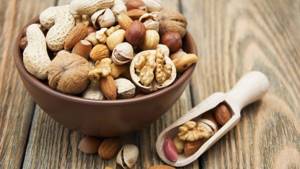
At the same time, high-calorie fruits are used for snacking in raw form only once a day . When adding to a dish, it is better to alternate several types of product. For example, if you ate 5–10 pistachios after breakfast, do not eat them for lunch or dinner, but add crushed walnut slices or peanuts to your salad or porridge.
Benefits of Snacking:
- rapid saturation of the body with fatty acids;
- getting rid of hunger and feeling full;
- improving brain function, relieving headaches and dizziness;
- normalization of the gastrointestinal tract thanks to fiber.
Consuming the product will negatively affect your well-being if you have an individual intolerance or allergy.
Disadvantages of introducing nuts into the diet during snacks:
- obese people have to strictly monitor the amount of fruit they eat: nutritionists recommend reducing the permissible limit by 2 times;
- the fruits contain oxalates, which, if consumed excessively, provoke the appearance of stones and sand in the kidneys;
- The product is a heavy food, so people with acute gastrointestinal diseases should not abuse it.
